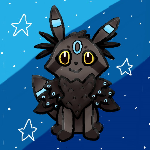Forum Thread
Mental Health Awareness Month FFCS
Forum-Index → Diaries → Mental Health Awareness Month FFCS"The more you learn, the more you know!"
"Learning is as fun as you make it."
UPDATE:
Though May has come and gone, I'd like to leave this thread open for anyone who would like to share their stories. I believe it brings us closer as a community and helps us understand one another better. Remember that there are people out there that are going through struggles just like you, and who knows, maybe you'll find some new friends among this thread too!
Posting a TRIGGER WARNING in this initial message as these stories are personal struggles with mental illnesses. Read at your own caution.
Beautiful mental health gallery Lots of good stuff, pics and inspirational, educational pics.
List of Hotline numbers for each country

Title: Helpful Websites
another part of the website that offers 15 tips for being well
The National Alliance on Mental Health, a website to help learn more about mental health
A website that breaks down this year's Mental Health Awareness theme entitled Risky Business and includes tools and resources

Title: Mental Health Month
Despite this shift in attitude, the idea of a mental health awareness campaign is not a recent one. In the late 1940's, the first National Mental Health Awareness Week was launched in the United States and has been observed in May in the United States since 1949, reaching millions of people in the United States through the media, local events, and screenings. During the 1960's, this annual, weekly campaign was upgraded to a monthly one with May the designated month.
Each year millions of Americans face the reality of living with a mental health condition. During the month of May, participants across the country are raising awareness of mental illness. Each year we fight stigma, provide support, educate the public and advocate for equal care.

Title: Fighting Stigma
Stigma is when someone, or even you yourself, views a person in a negative way just because they have a mental health condition. Some people describe stigma as a feeling of shame or judgement from someone else. Stigma can even come from an internal place, confusing feeling bad with being bad.
Navigating life with a mental health condition can be tough, and the isolation, blame and secrecy that is often encouraged by stigma can create huge challenges to reaching out, getting needed support and living well. Learning how to avoid and address stigma are important for all of us, especially when you realize stigma’s effects:
• People experiencing mental health conditions often face rejection, bullying and discrimination. This can make their journey to recovery longer and more difficult.
• Mental health conditions are the leading cause of disability across the United States.
• Even though most people can be successfully treated, less than half of the adults in the U.S. who need services and treatment get the help they need.
• The average delay between the onset of symptoms and intervention is 8-10 years.
• Suicide is the second leading cause of death of youth ages 15-24 and the tenth leading cause of death for all Americans.
3 steps to wiping out stigma
STEP 1 - Educate Yourself and Others
Everyone knows a little about mental health issues but knowing the facts can help you educate others and reject stigmatizing stereotypes. They are not the result of personal weakness, lack of character or poor upbringing. Understanding mental health isn't only about being able to identify symptoms and having a name for conditions, but dispelling false ideas about mental health conditions as well.
STEP 2- See the Person, Not the Condition
1 in 5 Americans live with a mental health condition and each of them has their own story, path and journey that says more about them than their diagnosis does. Whether you are a friend, family member, caregiver or medical professional, getting to know a person and treating them with kindness and empathy means far more than just knowing what they are going through.
STEP 3- Take Action
Our mental health care system has been in crisis for far too long; often keeping treatment and recovery out of the hands of many who need it. We can take action now as we push for better legislation and policies to improve lives for everyone. By lending your support, you can show that this cause is important to you.

Title: Mental Health Breakdown
Mental health is defined as a state of well-being in which every individual realizes his or her own potential, can cope with the normal stresses of life, can work productively and fruitfully, and is able to make a contribution to her or his community.
Mental health includes our emotional, psychological, and social well-being. It affects how we think, feel, and act. It also helps determine how we handle stress, relate to others, and make choices. Mental health is important at every stage of life, from childhood and adolescence through adulthood.
The terms "behavioral health" and "mental health" are often used interchangeably. Behavioral health includes not only ways of promoting well-being by preventing or intervening in mental illness such as depression or anxiety, but also has as an aim preventing or intervening in substance abuse or other addictions.
Mental illness refers to a wide range of mental health conditions — disorders that affect your mood, thinking and behavior. Examples of mental illness include depression, anxiety disorders, schizophrenia, eating disorders and addictive behaviors.
In addition, 4 of the 10 leading causes of disability in the U.S. and other developed countries are mental disorders - major depression, bipolar disorder, schizophrenia, and obsessive-compulsive disorder. Many people suffer from more than one mental disorder at a given time.
Certain factors may increase your risk of developing mental health problems, including: Having a blood relative, such as a parent or sibling, with a mental illness. Stressful life situations, such as financial problems, a loved one's death or a divorce. An ongoing (chronic) medical condition, such as diabetes.
There are more than 200 classified forms of mental illness. Some of the more common disorders are depression, bipolar disorder, dementia, schizophrenia and anxiety disorders. Symptoms may include changes in mood, personality, personal habits and/or social withdrawal.
There are currently two widely established systems for classifying mental disorders—Chapter V of the International Classification of Diseases (ICD-10) produced by the World Health Organization (WHO) and the Diagnostic and Statistical Manual of Mental Disorders (DSM-5) produced by the American Psychiatric Association.
The DSM
Psychologists and psychiatrists use a reference book called the Diagnostic and Statistical Manual of Mental Disorders (DSM) to diagnose psychological disorders. The DSM-IV uses a multi-axial system of classification, which means that diagnoses are made on several different axes or dimensions.
What is the definition of good mental health?
Good mental health isn't just the absence of mental health problems. Being mentally or emotionally healthy is much more than being free of depression, anxiety, or other psychological issues. Rather than the absence of mental illness, mental health refers to the presence of positive characteristics.
What does it mean to be emotionally healthy?
One can have an emotional problem, mental illness or physical illness and still be emotionally healthy. People who have good emotional health can cope with problems with family, work or school. They have learned how to deal with their anger, worries and stress.
How can mental illness be treated?
As a result, many mental conditions can be effectively treated with one or a combination of the following therapies:
1. Medication.
2. Psychotherapy.
3. Group therapy.
4. Day treatment or partial hospital treatment.
5. Specific therapies, such as cognitive-behavior therapy and behavior modification.
Behavioral medicine is an interdisciplinary field combining both medicine and psychology and is concerned with the integration of knowledge in the biological, behavioral, psychological, and social sciences relevant to health and illness.
Behavioral medicine is the interdisciplinary field concerned with the development and integration of behavioral, psychosocial, and biomedical science knowledge and techniques relevant to the understanding of health and illness, and the application of this knowledge and these techniques to prevention, diagnosis, treatment and rehabilitation. Behavioral medicine takes a lifespan approach to health and health care, working with children, teens, adults and seniors individually and in groups, and working with racially and ethnically diverse communities in the United States and abroad.
It refers to a system of care in which the patient's community, not a specific facility such as a hospital, is the primary provider of care for people with a mental illness. The goal of community mental health services often includes much more than simply providing outpatient psychiatric treatment.
How can you be emotionally healthy?
7 Steps To Being Healthy
1. Monitor your emotions. Pay particular attention to when you are in a happy mood and when you are low.
2. Tackle the low moods with activities can raise your mood.
3. Make sure you surround yourself with positive people.
4. Use auditory stimulation.
5. Use affirmations and positive thinking.
6. Avoid drugs and minimize alcohol.
7. Express yourself through writing.

Title: mental health month
In honor of advocating mental health awareness and stamping out stigmas, #FriendsForCommunitySupport would like to welcome you to participate in our month long giveaway!
All you have to do to enter is share this post and at the bottom of it share your own personal story about mental health, advocating, or even stigmas that you (or family/friends) have faced.
Please read this forum thread which has some facts and other useful information about mental health. Feel free to post in the forum with discussions about the topics or even your own experiences.
Let's stamp out stigma!
||Share It||
I had a rough childhood with an alcoholic father who get very physical when he drank and I, being the oldest child, was the peacekeeper. To this day I disdain confrontation and arguing. i would rather walk away and hide than argue a point no matter the importance.
I have always been the fat kid as well which did not help. i have memories of being 5yo and being forced to attend weight loss groups then being rewarded with ice cream for losing weight. This created a very tumultuous relationship with food that has plagued me my whole life.
Always a target for bullying at school and at home I tried to find ways to make people proud of me. I got good grades. I worked from a young age. I volunteered. Played sports. Nothing seemed to make a difference.
I was 5 when I attempted suicide the first time (yes 5, I was so distraught I ran in front of a car yelling just let me die - I knew what i was doing) and 16 the second time. That time was in front of my mother who just laughed at me and walked away. Over the years I've tried bulimia, anorexia, drinking, cutting... i've tried it all to hide or dull the pain. i hated myself and everyone around me. Why was I not good enough? I continue to have addictions to tattoos, food and when the stress is bad I still cut.
I left home at 16 and slept in my car. Graduated from high school and took off to another state. Failed marriage #1. Went to college and met hubby #2 online. After completing a 6yr degree in 3 1/2 I packed up and left the country. It turned very abusive that even 10 years on i'm in so much pain - emotional and physical - I wish I could end it all.
My diagnosis list is a page long. Aside from several chronic medical conditions and auto-immune issues, I have PTSD, severe anxiety and depression. I have fused bones, herniated discs in my back and neck from the abuse, and arthritis head to toe. I've had 9 miscarriages and over a dozen surgeries. My body has been a battle ground from day one.
Despite all the BS i've been through i do try to be as kind as possible to people. You never know when that small bit of kindness is what someone needs to keep hanging in there and not hurt themselves or someone else. I do have my days where the pain is so bad i truly don't want to talk to people or even typing makes me cry so don't take it personally if i am not up for a lot of chat. i don't chat much anyway but it's more about me than you.
be safe. be kind.
I'm lucky and I have always been. Others must think so too as from a young age until I went away to university I was bullied, and even then some into my professional life.
At a young age I was diagnosed as being hard of hearing, I wore hearing aids like a second skin, I knew nothing else. I didn't think I was different, sure I couldn't say half my sounds, but the friends who played with me mattered. I was lucky, I had two older brothers who looked out for me at school. I never knew this when I was younger but if they heard a child was bullying me they would come to my defence.
As I grew older I got sick and was put on steroids, they messed with my emotions giving me violent mood swings and a temper. I struggled with looking like an over-inflated beach ball, but otherwise stayed upbeat. My parents introduced me to horses and I found my passion in life. I could do anything and everything I dreamt of.
In middle school, I got better and the steroids were done. However the drugs effected some of my emotional development. The horses became my refuge. I was bullied nonstop. I became a recluse or a loner at school, my grades were mediocre, but for once a week, I got to ride and for that I made it to high school.
I got my first horse as a gift for pulling up my grades, he gave me a purpose, a new social group where I could keep up. School friends faded away as they tolerated my existence for school projects. I was never invited to parties, didn't go to prom, but it was okay. I had my horse, until I didn't.
I got to university, I had outgrown my horse and sold him to a little girl who I knew would love him (and she did). With the money I got from his sale I wasn't ready to buy another horse. I opted to lease instead. The pressure I felt from my barn to buy a horse right away was so immense. For some reason they were under the illusion that I came from a wealthy family. If wealth equals love, yes I was rich. Financially not so much. Nonetheless, I was lucky.
I got bullied, and cast out of my social group, I was suddenly not good enough for them. When I eventually found my horse of a lifetime they proceeded to emotionally abuse me. Calling me princess because they knew what the horse I bought was advertised for.... Over 75% more than what I paid. They didn't know the story of how I got him, but they didn't want to know either. I was still a rich kid to them, regardless of how kind I was, favours I did. I started giving up.
My passion, was being driven away from me by mean girls. They infiltrated my safe place. I was tired, my grades at school were failing, I was defeated and on one winter day on the road to the farm to ride, I intentionally drove off the road toward a telephone pole.
I was lucky.
Something triggered in the last split seconds and I pulled out. I called my mom and told her EVERYTHING. I went to the barn, I hugged my horse. I knew I was lucky to have him in my life, I couldn't leave him. My mother met me there and that weekend I went home. I got a chance to see my family, my brothers and be reminded of what I had going for me.
I got help.
I went to therapists, took notes on anti-bullying and how to get out of situations. I left university and travelled for 3 months to find myself before coming back and finding a job. I moved my horse to a new barn, never spoke to any of those girls again. I never needed to. When I see them I politely wave and move on.
I had an amazing childhood, but in my case the moment my safe place was destroyed I was shattered. I lost sight in who I was to myself, and what I meant to the people who loved me.
I was lucky, and I was strong. I got help when I recognised that I needed it. Since then I have been a strong advocate for those who can't, I help friends when they need advice, and my couch is there when they need it. Things can get better, and it's okay to ask for help.
My palpad is always open.
It all started when I was in 6th grade, it was the second semester of the year and I had to do a running test, or as they call it the "pacer fitness test." It was going good at first and I thought I could of lasted a lot more laps but then, I started to feel like I couldn't breath, I thought I was gonna die. The coach managed to calm me down and I went to the nurses office to be picked up.
The next day, the boys in my gym class laughed at me for having a panic attack (I didn't know that at the time.) and I was angry. Other things that caused this was parents used to fight a lot and I was bullied by an eighth grade girl. I later got diagnosed with Anxiety.
In 7th grade, things got more bad, I had to keep my T.V. in a straight part and my bed in a straight part or I would feel frustrated.
In 8th grade, I would wash my hands everyday because of grease food and friends who touched me. Whenever I got home, If My computer was dirty, I would have to spill a whole bunch of water in order to make me feel like it was clean but since I kept doing that, it eventually killed the computer.
During the eighth grade dance, I had this friend who whenever I touched, I had to go wash my hands a lot.
After failing 9th grade for the first semester, I was homeschooled, but not just because of that, also because mental illness. I got worse and worse as time went by, I always stayed in my room, every time I went out, I had to take a long shower, and I couldn't touch cups or plates without my parents help. I got suicidal and tried 3 times. I was too scared, I attempted them but never actually did it.
Once we moved, I was calm then, I started to scratch my neck and hurt myself. I was very hurt by my parents yelling, never understanding how I felt with this,I wouldn't even care about my health before. One day, I kept screaming "GET ME SOME HELP THEN!" I finally got help by going to a hospital, they asked questions if I wanted to hurt myself, I said yes, I wish I didn't say yes, but I don't really know anymore. Anyway, I was taken to the clinic and I was crying, I had never been away from my parents for a long time. Those 3 days were scary, but at least they fed me and did some fun activities there.
The time I got out, I got better, well expect the phobia part. Later, they diagnosed me with Depression (I don't really have it but sometimes I feel like I do.),OCD, and Anxiety Disorder.
As of now,I don't hurt myself anymore, I don't shut myself out, I cry for no reason sometimes, I get anxious a lot, and I still have issues with OCD,Anixety,and phobia.
Update: I now have depression along with my OCD,Anixety,and my phobia is slowing going away.

Hey,the name's Fern! I'm an autistic adult who draws and watches cartoons.
Every time I got to a place in my life where I was happy, it ended with my heart being ripped to pieces. My whole family (on my mom's side) wanted nothing to do with me because I was too vocal about standing up for what was right. My own mother wished I had never been born. I was told that everything horrible that had happened to us was my fault (basically us never having enough money when it was her spending it on cigarettes, or that my attitude was the reason we had to leave five places in three years)
Where was I a week before leaving my mom to come live with my dad? (Besides 98 pounds from never having enough food for most of my life) Holding a knife in my hands, contemplating cutting myself or committing suicide because I had just spent the last month living alone in a house with no clean water, no heat, no running facilities. My food for that month consisted of peanut butter and mostly canned food items. The day I returned to my mom was the day I was told all those things. It broke me. And every time I came close to overcoming, something else happened, and shattered me all over again.
It wasn't long after I joined Facebook, that I got involved in roleplaying, and made a lot of "friends" over the course of two years. But I still had no proper social etiquette. I would say or do things repeatedly that hurt the other person, but I had no clue what I was doing wrong. After another year, most of the people who had befriended me had ended things, most commonly, over my lack of understanding of how my actions hurt them.
At this point, I took a deep look within myself, and saw things that needed to be changed. I started making efforts to be a better person, and to recognize and admit to my mistakes. I ended up pushing these people farther away by my determination to make them see that I had changed. In the end, I ended things with harsh words, upset that no matter what I did, nothing would change. Even more upset that these were people who claimed they would always be there for me. That they understood me. I felt betrayed and abandoned.
Where has this left me?
I'm scared to make new friends, because I feel like everyone will leave me in the end. Just because almost everybody I've ever cared about has, even after promising me they wouldn't. I can't bring myself to trust people. If I trust you enough to let you in my life, it's one of the highest compliments I can give you. I'm essentially baring my heart and soul to you in the hopes that you won't destroy me. There are occasions when the written word can set me off. Not in anger, but in anxiety, because I fear where the conversation is going to go. I guess you could say that I'm now always scared of letting down the people I've come to care about, even if it's in minor ways, just because I can't stand the thought of losing yet another person in my life. I get especially anxious over things that are misunderstood, whether on my end, or the other persons, because I now hate being "yelled" at.
It leaves me deleting most of my posts or comments after a few minutes to hours because I feel like nobody cares about what I have to say. I pretty much live every day feeling like I will never amount to anything and that my life serves no purpose. There are times when I'll go completely silent and not want to talk to anyone, even those who have become my confidantes. Sometimes after an argument, I'll avoid the person for a while to give myself space.
I think the worst thing of it all was being told to "suck it up" or that others had it much worse than I did by people who barely knew anything about me or my situation. Like...I knew that. But each person deals with pain in different ways because what affects me so greatly might not affect you. It doesn't make my pain any less to me.
It's all that and so much more than I care to share. But every day comes out as a struggle for me. Some days I'm great. Others, I'm taking my anger out on people who don't deserve it just because of their one or two habits I can't stand, but can typically tolerate. I'm just glad my dad was the saving grace for me, and so very happy that I had the courage to come live with him, (I was taken from him when I was three). I'm a much better person because of him, and I wouldn't change a thing, since it all led me here.
And with all that, I fall silent. Sorry for the long post. Sometimes you just need to let things out.
I was upset because of you saying something that hurt Ignus. At no moment did I think about your feelings, and for that I am truly sorry. I beat myself up over it for a month or two thinking about every little detail I would have changed if able.
Like you I lack social skills. Maybe that is why I was as harsh as I was.
I too lack understanding and I too hurt people trying to understand. Is it worth understanding if I hurt people? Oh well.
Once again I am so sorry FireWolf1117.
I contemplated writing my story out for all those to view it. In all honestly, I was afraid. I was scared to bare the parts of me that I've hidden from sight for so long but your stories have given me the courage to tell mine. So thank you all for this <3
I grew up a happy child who pretty much had everything I needed. But it wasn't always that way. When I was born, my lung collapsed and I now have asthma because of it. My mother doesn't know who my real father is and tended to pass me off to other family members whenever she pleased. My family loved me though and provided for me. They were my rocks growing up. When I was 3 my mother was in a relationship with a horrible man. He beat her and s. abused me up until my aunt stepped in and took custody of me. Her and my uncle raised me as their child and I'll always be grateful to them. My aunt read to me all the time, which left me yearning for every book that I could get my hands on. I was overweight (like most people in my family) and I had glasses, so I was a ripe target for a lot of bullying. Thankfully some people recognized my sweet and funny personality and became my friends. I was outgoing during those years and had a good amount of friends. I went to parties and sleepovers and never had a bad thought.
All of that changed when I went to middle school. Depression started to hit me hard and though I had been in therapy when I was younger, I stopped until I went to middle school. The medication and therapy sessions just weren't reaching me and I overdosed at age 13. That was the first time that I went to the hospital. I liked it there, I didn't have all of the outside worries that I had in 'reality'. So when I left and was thrown back into school the next day (Valentine's day of all days..) I was shocked to see my name paired with my crush's name on a bulletin board. It felt like everything was crashing in on me and I went straight back to the hospital for another week until I learned how to cope with 'reality' after leaving the hospital.
Over the years I struggled, I was diagnosed with depression and put on countless meds that never seemed to help. At 15 my 'parents' got divorced and I went to live with my aunt, which meant switching schools. I was always so good at keeping my grades up, even though I never wanted to actually be in school. I missed my friends and lived with my uncle after a few months. For my 16th birthday, they came together and threw me a sweet 16 party. However, none of my friends showed up. Not a single one. I had family there but it was so heart breaking for me. After that I tried to commit suicide again, each time just not thinking about the consequences because I wanted the pain to end. At 18 I moved in with a boyfriend and was s. abused by his stepdad for a year before being able to move out and get away. I jumped around a lot, from family member to family member, to friend to friend, never feeling like I belonged anywhere but not being able to get my own place. I had never worked a job and had no experience. I felt like I was caught in a loop.
Several years passed and I though I was living the high life. I was living with my real mom and going to college online because I was way too scared to live on a campus and attend a real school. Though I was going for Human Service Management (I wanted to be a therapist), I was using drugs when not doing my homework and even attempted suicide once or twice more. I was able to get my degree but I felt like it wasn't enough. I went back to get my bachelors in the same field and kept doing what I was doing. Eventually I moved around a lot more, even moved out of state to live with a boyfriend but I still felt like something was amiss in my life. I started roleplaying a lot and getting lost on the computer, it was (and still is) my refuge. Slowly the computer replaced 'real' friends and I dug deeper and deeper into a pit where I just wanted to be by myself. After moving back home I got into a big fight with my new 'stepdad' or I should say my aunt's new husband and got kicked out of the house. I lived with my real mother and sister after that and suffered my first manic episode. I wrote checks that I couldn't pay for and ran up a credit card with Amazon without realizing what I was doing. Soon after that I found out that my mother was tucking money away to pay for a cruise for herself instead of paying the bills and we all had to leave. I literally had no where to go but thankfully a friend from the internet offered me a bedroom in Ohio. I left and went there for a year.
It was a tough year for me because I suffered depression and manic episodes, often doing things that were dangerous but I didn't care. I ended up with a boyfriend and moved in with his family but he didn't treat me right. My depression grew and I attempted suicide several times while there. I moved in with 'friends' after that and slowly learned that they were big drug addicts, preferring to spend money on drugs than bills. Even I got sucked into the frenzy, doing drugs and trying to forget about the pain that I constantly felt inside. I attempted suicide twice more before I was able to get out of that situation and come back home, home with my aunt.
Over the years I've been diagnosed as depression/manic on the depressive side (because I have that more than manic episodes), borderline personality disorder, anxiety, social anxiety, agoraphobia, bipolar, and schitzo-affective on the depression side. I tend to connect better to people when I'm on the computer rather than face to face. However, I'm proud to say that over the last 2 years, I have not attempted suicide again. My last attempt was a wake up call. I overdosed and went to bed, never expecting to wake up but I did. I took that as a sign that I was meant to be here for a reason. Even if it meant only helping one person in this world.
I went and got my masters in psychology degree online and learned a lot about my diagnoses and ways to cope. I've learned that medication isn't a magic pill that'll make me feel better. I have to help myself get better. I'll never be 'cured' as there is no cure from what I suffer from, but there are ways to help deal with it. It's almost like cancer, it goes into remission and I'm ok for a while, but then there are times that it hits me again and I have to seek out help. I've been in and out of hospitals and though I believe they help some people, they never helped me. I've learned that by reaching out to people and using coping skills, that it prevents me from seeking out harmful behaviors. I see a therapist and take medications to treat my symptoms but I've learned that I am not my diagnosis. It doesn't define me and I don't have to let it dictate who I am. I've become a strong advocate for mental health awareness and I still want to be a therapist or at least something that helps others. I want others to know that there are people out there willing to help, people that can truly understand your situation. You are not alone, never forget that. Even when the odds don't feel as though they are in your favor, there's still someone out there that's in your corner.
Everyone has traumas, even if they aren't traumatic to you, it could be to them. Remember that kindness can go a long way because you don't know what that person is dealing with silently. Pay it forward and kindness will find you. Look for little rays of hope even in the bleakest moments and remember that it will get better. Even if you have to make it better yourself.
Please never be afraid to reach out to me. My palpad is always open and you're free from judgment while talking to me. I can offer advice or I can even listen while you vent. Even if I help just one person, I feel like I've made a difference in this world and that's all that we can hope for.

Here goes...
Once upon a time, I thought I was an empathetic person. I knew how others felt by their body language, I understood it, and could perceive what they were going through. Maybe I was wrong. Maybe I don't actually feel genuinely about it. It's hard to really tell sometimes for me between what is genuinely felt and what is understood. It's nothing like autism or Asperger's or any diagnosed disease or condition or anything, just that genuine-ness is a problem for me.
I was diagnosed with dysthymia in high school, after people thought that I had put together a hit list. This was post-9/11 and people were extremely paranoid. I even almost got expelled and the cops called, had to appear before a judge about all of it. That's how I started going to therapy the first time. Dysthymia is also called Persistent Depression Disorder. It's sort of like if you take the average feeling of having Major Depression, and plateauing it. So I don't often feel the valleys of wanting to kill myself suddenly, but I also don't feel the highs of happiness or joy. When something good happens to me, people will still perceive my mood as though I'm complaining about it. I still rationalize the feelings of disgruntle, hopelessness, inferiority, and the desire to die as most people with depression do; just without the irrational energy to do something about it. I can't really describe it better than that. If you live a certain way long enough, that becomes the norm. The pipe dream becomes living in a state that you perceive as being "better." So this has been my "normal" for the majority of my life.
I've always been fat. The majority of my family is and has always been fat. I've never known a life of what most people would call being "skinny." I feel like the only love I've ever truly felt from anybody was from my now-deceased great-grandmother and my great-aunt, who I currently share a home with. Unlike her, who sees being fat as the greatest detriment to her life, I just see it as normal. I don't feel that it has been a hindrance to me or my social life. I've never really had much of one to begin with. I mean, like I've mentioned to Fury before, her and I have a shared experience with the birthday party and nobody coming aspect. To explain to international pokeheroes people, in America, having a gathering of friends is a normal occurrence. So to have a party and nobody come is kind of a thing to happen to you. Not even a warning ahead of time from somebody who couldn't make it. Just complete and utter desertion. But I digress.
I feel like mental illness probably runs through my bloodline through genetics. All of my family has one form of depression or another. The others have self-medicated, and thus have a good amount of alcoholics and drug addicts through the generations. I'd like to think that I'm one of the lucky ones who didn't gain the addictive personality. But maybe it's more so that I'm lucky to not have to deal with the drawbacks directly. Indirectly, though, I've dealt with the drawbacks plenty. I used to get a government check every month because I was considered a sick child. I was on oxygen for the first few years of my life, and would stop breathing in my sleep. That led to my mother fighting for custody of me so she could use my check for assorted drugs and booze.
I was forced to live with her and her boyfriend at the time, my brother's father, for a couple years. Most of it has been blocked out, but I remember fragments. It resulted it a few reoccurring dreams throughout my life. I've often wondered if the abuse is what triggered my identity as being pansexual, or whether that was born in me to begin with. I suppose it doesn't matter much anyway. I've always had questions as to why there were gender roles, why there were things that were allowed and not allowed. But it's never really bothered me. I didn't hate myself for having those thoughts, like I hear with so many people who struggle with their sexual identity. I was just me. I was just who I was, and it didn't seem like a big deal.
I was returned to my great-grandparents when I was almost 9, some time after my uncle had been arrested after a drunken rage, and my great-grandfather's heart attack left him unable to drink any longer. So I've seen a good chunk of the effects of addiction. Yet in the same breath, I hold some jealousy toward having an addictive personality. Most people don't see the benefits to having one. You see, addicts are ambitious, they have a focus, a driving force in order to reach their goals, albeit getting high, but nevertheless, they have that spark. It's a spark I lack. Unlike them, I don't genuinely want. Period. I used to go days without food simply because I didn't know what I wanted. I didn't want something in particular hard enough, or more enough. But it's like Schopenhauer said, the will to live will win out. Thus far, the will to live has won out over the desire to die.
I don't know whether or not my dysthymia has created asocial behavior in me, or whether it's been because of the people who have been in my life. It's sort of a chicken vs the egg thing. Who knows, maybe my mood has pushed everybody away. I've never been in a relationship that hasn't resulted in being traditionally cheated upon. Trying to be monogamous has only led me to be hurt. It's probably what led me to identify as polyamorous. It's easier to give people an out than to expect loyalty. Besides that, there's no reason for anybody to want to be linked to me for long periods. I don't really offer much of value. People who have been in relationships with me could say I'm overly touchy, hypercritical, lazy, unmotivated, and generally a monster. And for all I know, maybe they perceive me as being emotionally abusive. It's not something I try to be, I'm not even aware of my effects on others until they point it out at times. I can say without question there's no malice behind most of my actions. But that never matters.
As humans, we judge others by their actions, and ourselves by our motivations. No matter how good you think you are, you could be a piece of if looked upon completely objectively. That's where I feel a lot of the stigma comes from with mental health issues. Even now, I can't honestly say I've felt anything writing this. See, I have five methods of seeing a problem. There's what I feel, which I never really know until after taking time to figure out what I did or didn't feel. There's how I think I feel, which is something I can express in the moment, but it's still always kind of from an objective perspective. There's the analytical perspective, which is the one I give most. It's usually an objective middle ground. There's the devil's advocate perspective, which is me doing my best to see from the asker/speaker's point of view. I realize I really can't, but I do my best to try and see things from their perspective. Last but not least, there's the third-person perspective. The perspective of if somebody else is involved, or somebody else is about to be involved. How they think of what's being asked/spoken about, and how it would lead to the future. So many cause and effects, so many possibilities.
My mind acts like an endless web in this way. Point to point. Possibility after possibility. Yet it lacks instinct; impulse. An impulsive person can just go to any point and act, react, answer. It's yes or no. It's 1 or 0, very binary ways of thinking. In many ways, compared to the web, it can be superior. They can act on a point within a hole in the web. Yet it also lacks conceptualization. It lacks the capacity to understand the cause and effect beyond one thing. It lacks peripheral. I don't know if this way of thinking is particularly special. I don't know if it's a "good" or "bad" way of thinking, or if it just exists as an "is." But it's just an "is" for me.
Anyway, I'm at the end of this, and I decided to post it. So yeah, this is a thing now I guess.
In second grade, I was diagnosed with severe ADHD (I know, I was reeeeeeally hyper and inattentive). I struggled with this in so many ways as I grew up. I could never remember things and I was constantly causing disruptions in class without meaning to. I had accommodations for my ADHD, and in Elementary school my teachers were relatively understanding and helpful. Despite that, I was constantly afraid of the words that some people told me - ADHD isn't real, and I'm just not trying. Middle school was interesting for me, and probably where things started to turn slightly negative for me. I had to deal with more teachers, and by extension, there was a higher probability of encountering teachers who didn't understand ADHD, and did not follow my legal accommodations. I managed to get through it, though, and the teachers who did help made a big difference for me. I think I was beginning to show the signs of anxiety in seventh and eighth grade, though I was unaware of it, but the help from some of my teachers made a huge difference. The more they tried to understand me and the less they accused me of abusing my accommodations, the more productive I was and the more I communicated with them. Then there was 9th grade, my first year of high school. This transition was huge for me, and I was also in several classes above my grade level. This meant that I didn't get much of the normal accommodation teachers give to freshmen as they adjust to the rigor of high school. On top of that, my high school is particularly strict and rigorous, and the expectations were extremely high. One of the huge things that went wrong that year was with my English teacher. As I was struggling to keep afloat in the onslaught of homework (which for me was mostly busy work - I don't need to do a type of problem 7 times to remember how to do it (once or twice is enough) and I usually understand things just through my first or second read), she made the assumption (that so many make) that someone like me, who was brilliant and scored high on tests, couldn't possibly have ADHD. She blatantly refused to follow my accommodations. She sharply told me, in front of other students, that my accommodations were unfair to the other students in the class. We had meeting after meeting with her and my counselor, and she always acted like she understood and then she'd go back to being a jerk to me in class. One of my philosophies had been that I needed to communicate clearly with my teachers so they understood what was going on. The more I tried to talk to my English teacher, the more she shut me down. Once she said, before I had even finished my sentence about what I was asking for "Go sit down, this conversation is over, I'm not talking to you about this." The more this happened, the more insecure I got about my ADHD. I started to feel and believe that I was not adequate, that I could just fix my ADHD if I really tried, and I started to get afraid of asking for even the most basic accommodations from my other teachers (such as bringing an assignment a day late because I left it in the printer). I honestly think that this is the year I truly developed anxiety. But I didn't recognize it as such. I just thought I had ADHD. I managed to get through the school year, and for the week after the school year ended I couldn't rid myself of the guilty feeling that I needed to be doing something. It was like I'd just experienced something traumatic, and I was having trouble adjusting back to normalcy.
Tenth grade started out nicely. It was a fresh start for me, and I got along well with my teachers. As usual, though, I started to slip with the ADHD about a month into the school year, and then I was constantly behind. This doesn't mean I wasn't working my butt off. Playing catch-up in school is super stressful and takes a lot of work. Sometime in late November, I was part of a group project. My group was disorganized and difficult to work with, but we all wanted to do well. I put all priority on getting it done, as I felt that I couldn't let my ADHD affect other people. I destroyed my mental well-being trying to make up for the things I forgot to do by cutting into my sleep schedule and my relaxation time. I got up at four in the morning on the day of the project just to finish the things I had meant to do three days before. By the end of that day, I felt like there was no point in all my efforts. I felt unbearably lost and apathetic. I think this is where I truly began to feel depressed. A couple of weeks later my Wellness class was going over mental illnesses, and I looked at the description of depression symptoms and had this moment of "Oh my gosh, I think I have depression. Serious depression." I mentioned it to my counselor, but this was right before winter break so it was hard to schedule anything or determine anything at that time. Everything got worse over that winter break. I isolated myself, cried randomly, and couldn't even bring myself to waste time doing things I enjoyed. I needed to be working on productive things like schoolwork. But I couldn't do that, so I was inadequate. I started sleeping in until 3 pm and then going back to bed at 7 pm. It was insane. On Christmas, things reached a point where I realized my disconnect from my family was so strong that I couldn't even be happy with them on Christmas. I broke down, talked to my parents, and we scheduled an appointment with my doctor as soon as we could - for January 4th, the day after break. I was diagnosed with moderate to severe depression, and I started taking medication a couple weeks later. The meds were like a miracle. Suddenly I could breathe again, and I was experiencing small moments of happiness that I hadn't felt for over a month. I thought things were just going to get better from there. I had no clue how hard it would be to get over this. A couple weeks into the meds, my progress started to plateau, and I started feeling panicky. Things dipped. On top of this, my brother had started experiencing symptoms of severe depression, and he went into a semi-suicidal phase. I started missing a lot of school. I couldn't get myself to go. It was a combination of severe depression and anxiety. We finally got me a therapist sometime in February. The therapy was also super helpful. The appointments were the one thing in the day I wasn't scared of. My progress from there came in spurts and steps back. 10 steps forward, 11 steps back, 13 steps forward, 5 steps back. I was still missing a lot of school, and on top of that I was now missing credits and I was constantly trying to catch up with my classmates. My teachers were really understanding, thankfully. We found a way to make it work, and I would have ended the year positively if it weren't for my brother's suicide attempt and subsequent hospitalization. I missed the last two weeks. That summer, I made more progress, and a friend had invited me on a trip to Europe with their family. Turns out going was one of the worst things I could have done. Their family is extremely childish, unaccepting, and mentally unstable. There was a day we were eating at a small restaurant, and somehow we got onto the topic of our mental illnesses. I mentioned that my ADHD seemed to have subsided as soon as I got depressed - "It's a trade-off!" and I laughed. Their aunt went crazy on me. She started accusing me of not taking my mental illness seriously. I needed to grow up and learn to take care of my mental health. I had no right to laugh about something so serious, and I was in the wrong and I had no clue what mental illness does to people. All this because she had a son with autism. I feel so bad for her son if this is what her understanding of mental illness is. I started crying. We went back to the hotel, and my friend and I went back to the hotel room of the two family friends who had come along. We started talking about what had happened and getting over the hurt. I started to feel better. Then the aunt drunk, came storming into the room. She had been listening through the open window to our conversation, and decided that we were insulting her behind her back. She started verbally attacking me and saying I ruined the trip and she was going to split up and finish the trip on her own. My friend's mom came into the room (also drunk) and started arguing with her sister. The two family friends sat and watched like bystanders as my friend's mom started to get violent and throw things. She then turned on my friend after they defended me and picked them up by the neck and threw them against the wall. This whole experience was terrifying and traumatic. The two family friends tried to defend the mom afterwards, and refused to report anything. I was stuck with this family in Europe for the next 4 days. My friend got suicidal on and off, and I was the only one who tried to help. Their mom and family accused them of being selfish. This whole event sent me back about 4 months in my depression. I was almost back to where I started. I spent the rest of the summer trying to work out the experience and get over my anxiety with my therapist. I eventually got there, but I never did any of my summer homework while I was dealing with these feelings, nor did I prepare for the school year mentally. And so I started 11th grade. At this time, I switched therapists because my first one moved. My second therapist was more anxiety-focused, which ended up being very helpful as I started to be less depressed, as the underlying anxiety became more apparent. I stumbled through the first part of the year, and then collapsed again over winter break. It became pretty obvious that on top of the depression I had a form of Seasonal Affective Disorder. I started missing school again. I missed about 50 days of school in tenth grade, and almost exactly the same amount in 11th grade. We added a med to help with my anxiety, and things started to turn around again. As the year progressed, my patient teachers helped me catch up and made special exceptions for me so that I could get to class easier, despite my counselor never providing written accommodations for my depression and anxiety. I finished the year strong and in good attendance. 12th grade could only get better. 12 grade has been like a milder version of 11th grade. I started out the year behind (I forgot to mention that about 11th grade - no summer homework done meant I was already playing catch-up, which caused more anxiety), but communicated well with my teachers. Yet, this year, I had another teacher who made things difficult for me. My AP Psychology teacher (I know, it's ironic) decided that I had to predict when I would need an extension on an assignment. If I could predict ADHD and depression and anxiety, then I'd have recovered much more quickly, thank you very much psych teacher. Trying to deal with her brought back much of my old teacher-communication anxiety. I managed to fight through most of it, though, and made it almost to winter break without freaking out and relapsing badly. Almost. I relapsed again, and started missing school. Again. This time, though, I started to pull out of it much faster. I'd gone through this process twice before, and I was determined to be done with severe depression once and for all. My counselor helped me find a work-around with my psych teacher - an independent study where I get credit through taking tests, and not through homework. Over the last two months, I've been getting better and better at completing homework without anxiety, at talking to my teachers, and at coping positively with stress. I was able to let go of my biggest coping mechanism at the time - Pokeheroes, and separate myself from it enough to focus on myself for a while. This didn't mean I didn't go on pokeheroes anymore, just that I didn't rely on it so heavily when I was anxious or depressed. The last two weeks I went on a get-enough-done-that-graduation-is-possible spree. I worked like a maniac, with minimal anxiety, and prepared for 3 AP tests. I learned the 6 units of AP Psychology that I had missed in a week and a half. I turned in most of my late Quarter three AP Lit homework. I also reviewed for the AP chem and AP lit tests. For the first time in years, I exhibited my old determination to make things happen no matter what. Right now, I'm so close to being healed that I can relax again. I'm happy again. My therapy appointments now consist of talking about how I will cope with the transition to college, not how I can cope in the now. I have energy, and I was told the other day by a good friend (one I made after I got depression) that "You're really pretty when you smile, you know that?". I'm going to be okay.
If you have any questions about my experiences with these things, feel free to payload me anytime. Also, if you ever need advice, help, or just a friend when dealing with this stuff, I'm always willing to chat.
Title: My life story with ADD from Grade School to HS

Park Hyung Sik #ZA:E #K-POP #I'M IN LOVE
Title: Fitness4Mind4Body 2018
Before jumping into all of the links of information compiled for this year, I'd like to share a song that's a favorite of mine but I feel like everyone can relate to it in some way. We deserve to be accepted for who we are, whether we are at our best or at our worst.
Here's some inspirational quotes about mental health and ending stigma while more can be found here
Now here are some bits of information about mental health, stigma, and what you can do to stay healthy!
Stigma is when someone, or even you yourself, views a person in a negative way just because they have a mental health condition. Some people describe stigma as a feeling of shame or judgement from someone else. Stigma can even come from an internal place, confusing feeling bad with being bad.
Navigating life with a mental health condition can be tough, and the isolation, blame and secrecy that is often encouraged by stigma can create huge challenges to reaching out, getting needed support and living well. Mental Health and Stigma Fact Sheet
The purpose for Mental Health Awareness Month is to raise awareness and educate the public about: mental illnesses, such as the 18.1% of Americans who suffer from depression, schizophrenia, and bipolar disorder; the realities of living with these conditions; and strategies for attaining mental health and wellness. It also aims to draw attention to suicide, which can be precipitated by some mental illnesses. Additionally, Mental Health Awareness Month strives to reduce the stigma (negative attitudes and misconceptions) that surrounds mental illnesses. The month came about by presidential proclamation in 1949 and has been celebrated every year since.
A website called Mental Health America offers a 'toolkit' with helpful information about this year's theme. The toolkit focuses on: diet and nutrition, exercise, the gut-brain connection, sleep, and stress. Materials also include: Fact sheets on how mental health is affected by these things, worksheets on making life changes, a promotional poster, and social media related content. It can be found here You will have to fill out the brief online form to gain access to the toolkit.
Also on the Mental Health America website, you will find other helpful information such as:
Finding Help- it offers mental health screening tools, finding an affiliate in your area, information about learning about the types of mental health treatments and supports available, help in finding a support group or additional mental health resources in your community, and "Where To Get Help" an interactive tool to find the best options for you. It also has information about working with providers, has an FAQ section for commonly asked questions from insurance companies, treatments, to medications as well as a section for learning how to recover your life; which focuses on housing and relationships. Lastly, it has a great section on wellness tools that you can use every day to help live your life well. So check around the website and see what you can find for yourself. Don't be afraid to explore a little!
NAMI is another great organization that has a website with information about mental health and helps to raise awareness while fighting stigma. Website
Their theme is 'CureStigma' for the month of May and their website states:
Each year millions of Americans face the reality of living with a mental illness. During May, NAMI and the rest of the country are raising awareness of mental health. Each year we fight stigma, provide support, educate the public and advocate for policies that support people with mental illness and their families.
In 2018, NAMI will promote the theme of "CureStigma" throughout all awareness events, including Mental Health Month.
Why this cause is important: One in 5 Americans is affected by mental health conditions. Stigma is toxic to their mental health because it creates an environment of shame, fear and silence that prevents many people from seeking help and treatment. The perception of mental illness won’t change unless we act to change it.
Campaign manifesto: There’s a virus spreading across America. It harms the 1 in 5 Americans affected by mental health conditions. It shames them into silence. It prevents them from seeking help. And in some cases, it takes lives. What virus are we talking about? It’s stigma. Stigma against people with mental health conditions. But there’s good news. Stigma is 100% curable. Compassion, empathy and understanding are the antidote. Your voice can spread the cure. Join NAMI, the National Alliance on Mental Illness. Together we can #CureStigma.
Now, here's some great links regarding mental health!
Article about mental health awareness month
Super skills to help friends
Mental health topics from A-Z
Background about mental health awareness month
2018 awareness calendar
facts and statistics of 2017 and 2018
Free DSM-5 copy <-- You can freely download or view the Full Text edition and read what the American Psychiatric Association classifies disorders to be -Please note- Do NOT try to diagnosis yourself. This should be left to a professional, this is just to give you an idea about what they look for concerning disorders.
I'd like to touch on the history of mental health treatments in this section below followed by some links to current techniques for several therapies. It's safe to say that treatments have improved over the years as doctors now have a better understanding of mental illness.
In the old days, mental illness was not fully understood and it's sad to say it but those who suffered from mental illnesses were not treated kindly. Many were locked away in asylums, shackled up, beaten, tortured, and forgotten simply because they were misunderstood. The treatments back then were rather barbaric and did little to nothing to actually help the person. Thankfully today there are better treatments available and providers are much more understanding of mental illness.
Some of these older treatments included trephination, bloodletting and purging, isolation and asylums, insulin coma therapy, metrazol therapy, and lobotomy.
As we learn more about the causes and pathology of various mental disorders, the mental health community has developed effective, safe treatments in place of these dangerous, outdated practices. Today, those experiencing mental disorders can benefit from psychotherapy along with biomedical treatment and increased access to care. Treatments will continue to change along with scientific and research developments, and as mental health professionals gain more insight.
Community agencies have worked for years to provide people with the help they need to manage their conditions without entering a facility for life. Social workers, mental health counselors and more have all been involved in this movement, and while it’s safe to say that some communities provide help that’s superior to the level of assistance seen in other communities, it’s clear that people have options for treatment today through community resources that just didn’t exist a decade or so ago.
Laws have also changed, and they now allow concerned family members and community members to place people with mental illnesses inside therapeutic facilities for a short period of time, until they gain control. Some state laws even force people with mental illnesses to take medications, even if they don’t wish to do so.
It’s easy to view these legislative changes as a method that can allow people in the community to live with people who have mental illnesses, without worrying about their health and harm. But people who have mental illnesses have rights, and some don’t wish to accept this kind of treatment. Some patients want to manage their own conditions, using online resources as well as their doctors, and they’d like to have much more autonomy.
It’s unclear what role this might play in the future. But it is clear that practitioners now respect people with mental illnesses to an unprecedented degree, compared with previous years. Rather than silencing them with restraints and drugs, experts now want to partner with patients and help them. This could bring about a form of mental health treatment everyone could support.
Website where I found this information Please be aware that I didn't fully read the entire website and there may be disturbing material found on it, please view at your own risk!!
And here are some websites for therapy techniques and interventions
19 Narrative therapy techniques
15 Psychotherapy techniques
different approaches to psychotherapy explained
10 coolest therapy interventions
I hope this helps and provides information for anyone that needs it. Please feel free to look back at last year's information as it can still be helpful with links and even hotline numbers. Also, feel free to post your story in this thread. Remember, don't be afraid to share your experiences, it can inspire others and show them that they aren't alone.

 Don't have an account yet?
Don't have an account yet? 














